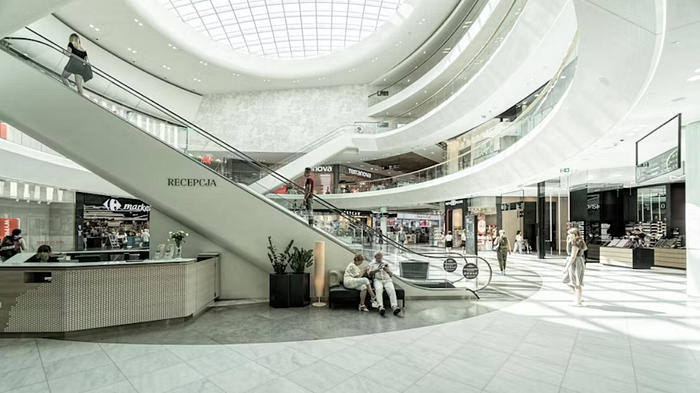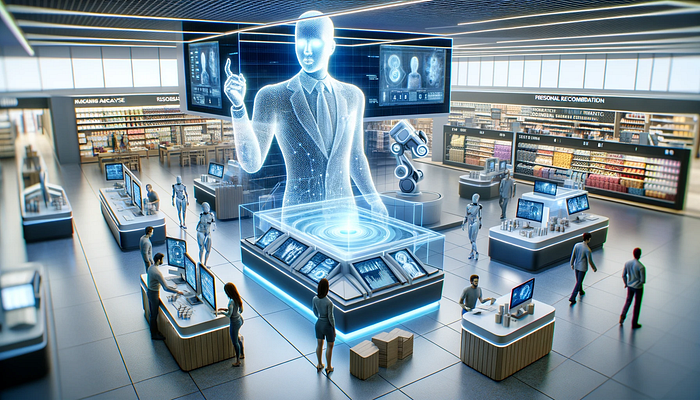Why Every Retailer Needs a Strategy — And a Consultant Behind It
If you’ve ever walked into a store and thought, “Why is everything so perfectly placed?” or wondered how big brands seem to read your mind with their promotions — well, that’s not magic. It’s retail management strategy at work. And behind the curtain? Often, it’s retail management consultancy doing the heavy lifting.
Whether you’re a business owner, aspiring retail professional, or just curious about how your favorite shops operate so smoothly, this article is for you. We’re going to walk you through the essentials — what a retail management consultancy does, how to build a retail strategy, and even decode some industry lingo with a helpful Retail Glossary.

What is Retail Management Consultancy?
Retail management consultancy is like a behind-the-scenes coach for retail businesses. These consultants work with retailers to optimize operations, improve customer experiences, and ultimately boost profitability. Their goal is to help businesses identify problems, create smart solutions, and deliver better performance without guesswork.
Why Retail Businesses Need Consultants
Retail is fast-paced, and businesses often struggle to keep up with changing trends, customer behaviors, and technology. That’s where consultants come in. They offer outside expertise, a fresh perspective, and proven strategies that help retail businesses overcome challenges and unlock new growth. From small local shops to major retail chains, having a consultant can be the game-changer many retailers need.
The Role of a Retail Strategy
Think of a retail strategy as the business’s game plan. It outlines how a company attracts and retains customers, chooses and prices its products, designs its store layout, and competes in the market. A well-thought-out strategy isn’t just about selling more — it’s about selling smarter. It’s what separates thriving retailers from those just getting by.
Key Services Offered by Retail Consultants
Retail consultants provide a wide variety of services depending on each client’s needs and goals. Two major areas that benefit from consulting are operations and customer experience.
- Operational optimization: From improving inventory systems to designing efficient store layouts.
- Customer engagement: Enhancing the shopper journey, training staff, and building loyalty programs.
Consultants also assist with market research, brand positioning, and digital transformation, giving businesses the tools they need to compete more effectively.
Common Challenges Solved by Retail Consultancy
Many retail businesses hit roadblocks like falling sales, outdated technology, or inefficient workflows. Consultants dig deep to identify what’s really going on and fix it at the root. Maybe customers aren’t finding what they need, or maybe marketing efforts aren’t reaching the right people.
By analyzing customer behavior, reviewing operations, and applying industry best practices, consultants can revamp underperforming areas. The results? Better customer satisfaction, increased revenue, and improved staff performance.

Understanding the Retail Glossary
Retail has its own language, and understanding that lingo can make a big difference. A Retail Glossary helps demystify commonly used terms so that teams can communicate more effectively and make smarter decisions.
For example, you’ll see acronyms like SKU (Stock Keeping Unit), POS (Point of Sale), and KPI (Key Performance Indicator). Understanding these terms makes it easier to work with data, track performance, and collaborate across teams.
The Anatomy of a Strong Retail Strategy
Every successful retail strategy has several key ingredients. It starts with understanding your target audience — what they want, how they shop, and what keeps them coming back. It also includes defining your product mix, setting pricing strategies, and determining the best channels for promotion.
Execution is just as important as planning. Retailers must align operations with strategy, ensuring consistency across marketing, store design, and digital platforms. When everything works together, the strategy delivers real results.
Technology’s Role in Retail Success
Technology is a retail game-changer. It enables faster checkouts, smarter inventory tracking, and more personalized customer experiences. Retail consultants help businesses choose the right tools — whether that’s a new e-commerce platform, advanced POS system, or a CRM that tracks customer preferences.
The right tech makes operations smoother and customer journeys more satisfying. It’s not just about staying modern — it’s about staying relevant.

Brick-and-Mortar vs. E-commerce: A Strategic Comparison
Both physical stores and online platforms offer unique advantages. Brick-and-mortar stores allow customers to touch and try products, while e-commerce brings convenience and reach.
Many modern retailers use a hybrid approach. They might let customers buy online and pick up in-store or offer consistent deals across both channels. The most successful strategies blend the best of both worlds to meet customer expectations.
Data-Driven Decisions in Retail
In today’s retail world, guessing doesn’t cut it. Data helps businesses make informed choices, from what products to stock to when to run promotions. Retail consultants help set up data systems that track customer behavior, sales trends, and inventory flow.
By analyzing this information, businesses can reduce waste, improve marketing, and better predict demand. It’s all about working smarter, not harder.
Customer Experience and Engagement Strategies
Today’s customers expect more than just a transaction — they want a meaningful experience. Engaging customers requires knowing what they value and delivering it consistently.
This could mean personalized product suggestions, fast checkout, or friendly and knowledgeable staff. Loyalty programs, in-store events, and great return policies also help build long-term relationships. When customers feel seen and valued, they keep coming back.
Trends Shaping the Future of Retail
Retail is always evolving. Right now, several trends are shaping its future in exciting ways:
- Sustainability is influencing product sourcing and packaging decisions.
- Mobile shopping is increasing, with apps becoming essential.
- Personalization is expected across channels, not just online.
- Automation is streamlining operations and improving accuracy.
- Experiential retail is turning stores into destinations, not just outlets.
Consultants keep businesses ahead of the curve by helping them adapt to these trends early.

Choosing the Right Retail Management Consultancy
Finding the right consultant can feel daunting, but it doesn’t have to be. Start by looking at experience. Do they understand your type of business? Ask for case studies or references. Communication is key — look for someone who listens and collaborates, not just tells you what to do.
And don’t be afraid to ask about their process. A good consultant will walk you through their methods, expected outcomes, and how success will be measured.
DIY Tips: Small Business Retail Strategy Ideas
If hiring a consultant isn’t in the cards just yet, there are a few simple steps you can take on your own:
- Start by surveying your customers. What do they like? What would they change?
- Track your top-selling products and adjust displays to highlight them.
- Use free tools like Google My Business to increase online visibility.
- Review your store layout — does it guide customers smoothly?
- Test different promotions and see what gets the best response.
These small actions can lead to surprisingly big improvements.
Final Thoughts and Takeaways
Retail success isn’t about chance — it’s about clarity, consistency, and smart planning. Whether you’re just starting out or looking to scale, a solid retail strategy backed by expert insight can make all the difference.
A retail management consultancy brings that clarity and direction, while tools like a Retail Glossary keep your team on the same page. No matter where you are in your journey, there’s always room to grow — and always a smarter way to work.
FAQs
1. What does a retail management consultancy actually do?
They help businesses improve operations, streamline strategy, and enhance the customer experience to increase profitability and competitiveness.
2. How is retail strategy different from a general business strategy?
Retail strategy specifically focuses on customer-facing aspects — like product selection, pricing, in-store design, and sales channels.
3. Why is understanding the Retail Glossary important?
It builds confidence in communication, helps teams understand each other, and enables smarter decisions.
4. Can small retailers afford or benefit from consultancy?
Yes. Some consultants offer scalable packages, and even short engagements can yield high-value insights and improvements.
5. Will brick-and-mortar stores disappear because of e-commerce?
Unlikely. Physical stores still offer unique value. The future lies in blending both channels into a seamless customer experience.
Comments
Post a Comment